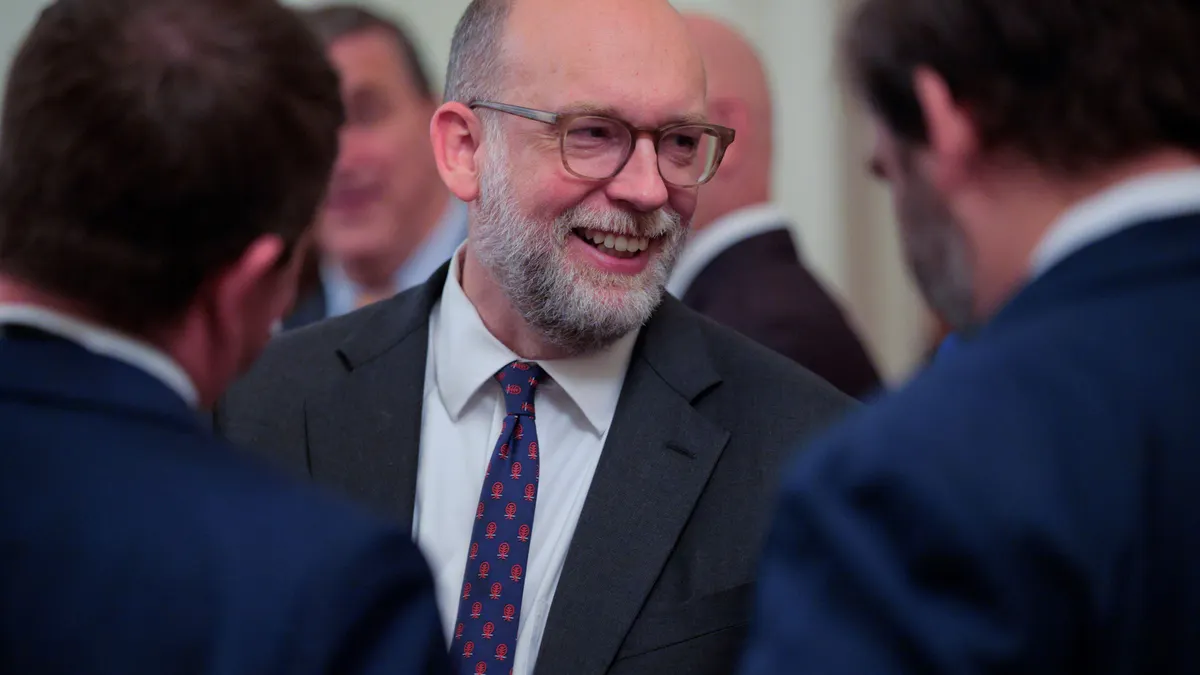For wallet-as-a-service fintech Ansa’s recent $14 million funding round, most of the funding – 95.6% of it – came from female investors.
“It was not intentional,” said Ansa co-founder Sophia Goldberg, following Tuesday’s announcement of the capital raise. “I think it's a testament to how many awesome female VCs are out there right now writing checks across the ecosystem.”
That’s a good omen for female founders, Goldberg said. PitchBook data shows that female founder-only startups received 2.1% of VC funds in 2023. Mixed gender founder teams received 23.8%. According to the Harvard Business Review, female VCs are more likely than male VCs to invest in female founders.
“Female founders get a small amount of VC money every year, and [the percentage gets smaller] as you increase round sizes and series of fundraising,” Goldberg said. “I think it’s a really big testament to how many women have continued to climb the ranks in VC, and it hopefully bodes well for more and more Series A, Series B and Series C female-led companies being able to raise funding.”
Ansa’s Series A funding round was led by Renegade Partners. Bain Capital Ventures, B37 Ventures, Box Group and Wischoff Ventures also participated.
Goldberg and co-founder JT Cho started Ansa in 2022 to give merchants relief from card payment fees that amount to as high as 12.5% of transaction value. Ansa white labels wallets for merchants to place within their apps, cutting down on the number of card transactions a customer makes with the merchant, thereby cutting fees and increasing loyalty.
The duo is using the fresh influx of cash to expand to other merchants in their core market, coffee and quick-service restaurants, as well as to expand into the marketplace sector. The funds will largely go to product development, team growth and scaling for the market.
Compass Coffee, an coffee shop based in Washington, D.C., launched a Ansa-powered in-app wallet in 2023 with positive results: customers who adopted the wallet were more loyal, and spent more money, than customers who did not, according to an Ansa case study.
Compass customers who utilized the wallet visited the coffee shop 30% more than loyal regulars who didn’t use the wallet. Revenue rose 26% per wallet user, and the merchant was able to save 28% in payment fees.
In the marketplace sector, Goldberg said they’re seeing “a really big inbound for marketplaces of all sizes, including the large name brand marketplaces, that are trying to drive on-platform economies.”
One use case, she said, is to allow sellers to have on-platform wallets with which they can make purchases from other sellers.
“Say you knit socks and I make homemade soap and I sell $100 worth of soap. Today, I get that $100 paid out to my bank account, but then I might go buy a pair of socks for you. It makes a lot more sense economically for me to be able to buy from another seller on the platform with funds without having to pull up my credit card to pay for it,” Goldberg said.
“That also drives the flywheel of a closed-loop payment economy [in that] I’m more likely to spend a little more, or maybe I get an incentive, for spending my earnings as a seller to support that ecosystem,” she said.
As far as team growth – which some of the $14 million has been earmarked for – Ansa recently hired more engineers. That’s allowing the fintech to move with more momentum on the products it’s building for customers, Goldberg said. Several roles are open on the business side, including in sales, as are roles as a customer success manager and chief of staff. All roles are based at Ansa’s San Francisco headquarters.
Renegade Partners co-founder and managing partner Renata Quintini, whose firm is also based in San Francisco, said in a prepared statement that Ansa is “setting a new standard for how we'll all transact in the future, with a pioneering payments solution that lets merchants trade burdensome credit card processing fees for increased customer lifetime value.”














